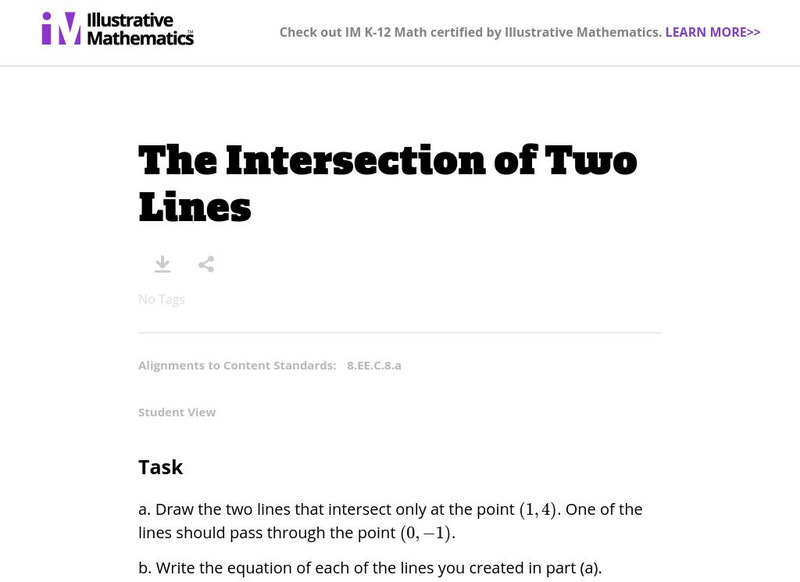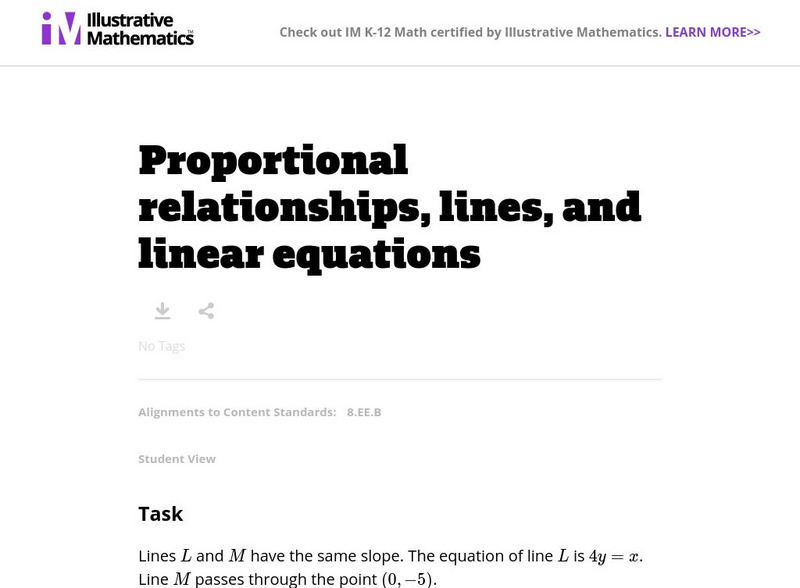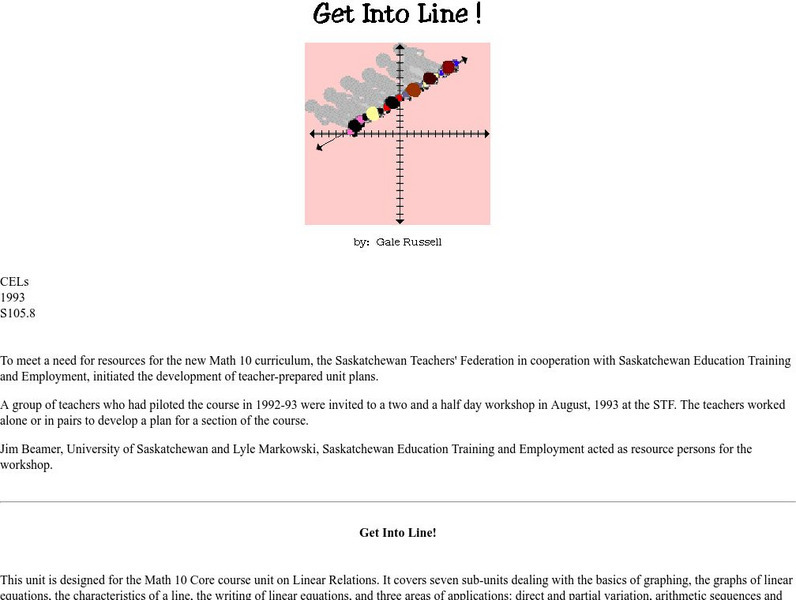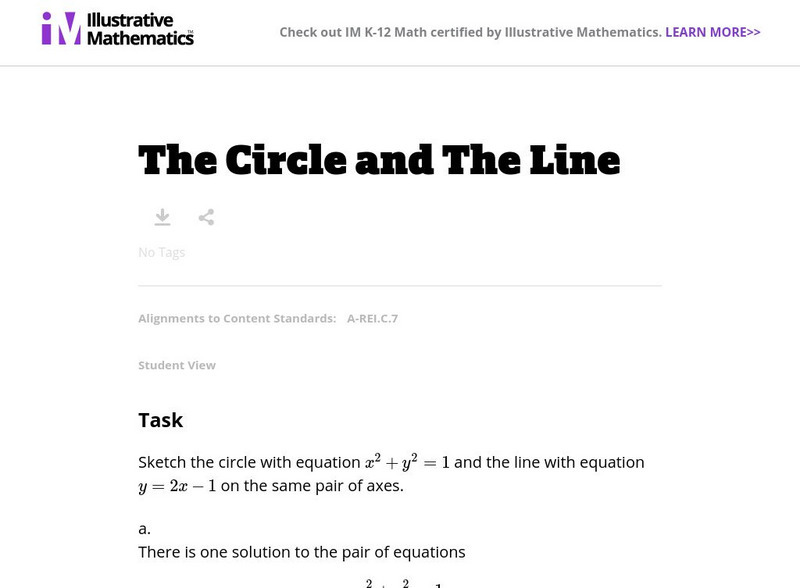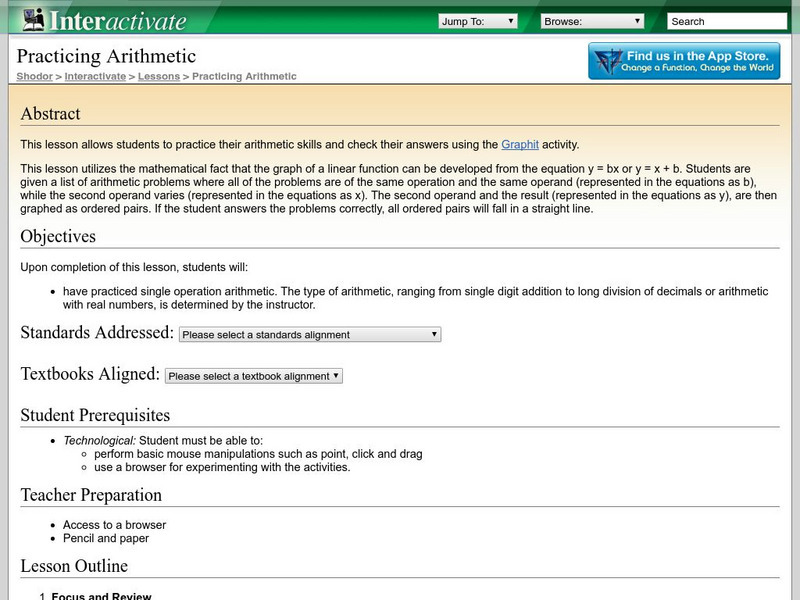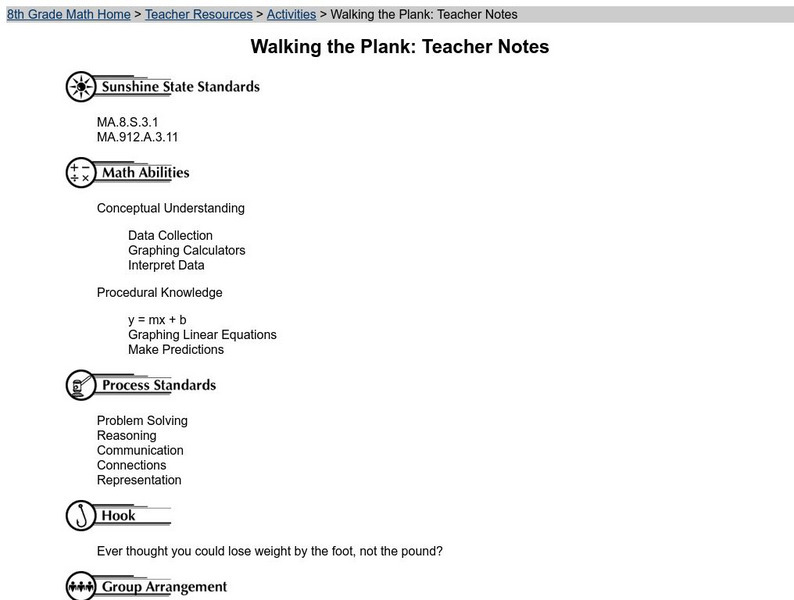Hi, what do you want to do?
Illustrative Mathematics
Illustrative Mathematics: The Intersection of Two Lines
The purpose of this task is to introduce students to systems of equations. It takes skills and concepts that students know up to this point, such as writing the equation of a given line, and uses it to introduce the idea that the...
Illustrative Mathematics
Illustrative Mathematics: 8.ee Proportional Relationships, Lines, and Equations
In this task, 8th graders are shown the graphs of two lines with the same slope. They are given the equation for the first line and the coordinates of a point on the second and are asked to find the equation for the second line. Aligns...
Alabama Learning Exchange
Alex: Finding the Slope of a Line
This lesson will use a slide presentation to facilitate teaching students how to find the slope of a line when given the graph of the line or two points. Students will interact with the presentation in two ways: first, by taking notes...
University of Regina (Canada)
University of Regina: Math Central: Linear Graphs
Students gain the knowledge of how to plot and recognize first degree equations on a graph. The lesson has an overview, materials, procedures, and evaluation techniques.
Illustrative Mathematics
Illustrative Mathematics: A Rei the Circle and the Line
Students are required to solve a system of equations in this task which will demonstrate their understanding of the correspondence between intersection points of the two graphs and solutions of the system. Aligns with A-REI.C.7.
Alabama Learning Exchange
Alex: A Piece of Pi
This lesson plan uses graphing to help students understand that pi is a constant and is the slope of the line graphed on a circumference vs. diameter graph.This lesson plan was created as a result of the Girls Engaged in Math and Science...
University of South Florida
Fcat: Exploring Linear Equations: Teacher Notes
This lesson plan guides students through the use of a graphing calculator to explore the slope and y-intercept of a line.
Shodor Education Foundation
Shodor Interactivate: Lesson: Arithmetic Practice W/ Ordered Pairs
The Shodor Education Foundation provides this lesson plan to have students practice simple computation that results in them graphing their answers. If they are accurate they will have a straight line. Students use an interactive...
Other
Nearpod: Interpreting Slope & Y Intercept
In this lesson on interpreting slope and y-intercept, 8th graders will learn how to identify the slope and the y-intercept of a line in order to identify if a proportion is demonstrated.
University of South Florida
Florida Center for Instructional Tech: Walking the Plank
Students use weight to collect data and investigate the linear relationship. This activity uses a graphing calculator.
University of South Florida
Fcat: Shaq's Hand/foot Span: Teacher Notes
Students compare their own hand/foot span to Shaquille O'Neal's, then graph the data & construct a best-fit line. They can then use the information to investigate the proportionality of the human body.
Alabama Learning Exchange
Alex: Human Slope
Students will participate in this discovery activity intended for them to uncover the role each variable plays in the graph of a line in the form y = mx + b. Students will actually demonstrate lines in slope intercept form on a life size...
Illustrative Mathematics
Illustrative Mathematics: A Rei Solution Sets
For this task, students are shown the graphs of two equations, with areas bounded by their lines and intersections shaded in different colors. They are asked to write a system of equations or inequalities for each shaded area and explain...
Science Education Resource Center at Carleton College
Serc: Mineral Density: Teaching Accuracy, Slope, and Percent Error
Students explore the meaning of density and use their math skills to graph mass/volume data, write an equation for a line, and interpret the slope of the line. Students also find the density of two unknown mineral samples and use those...





